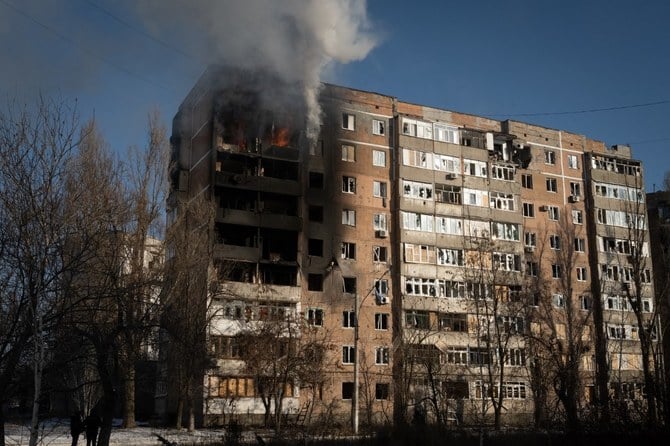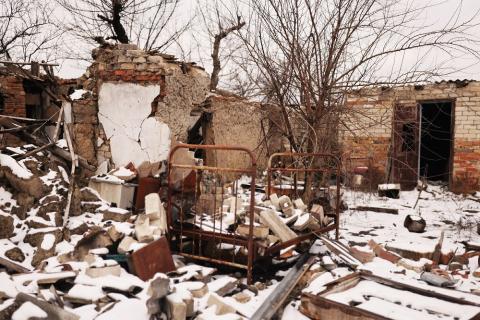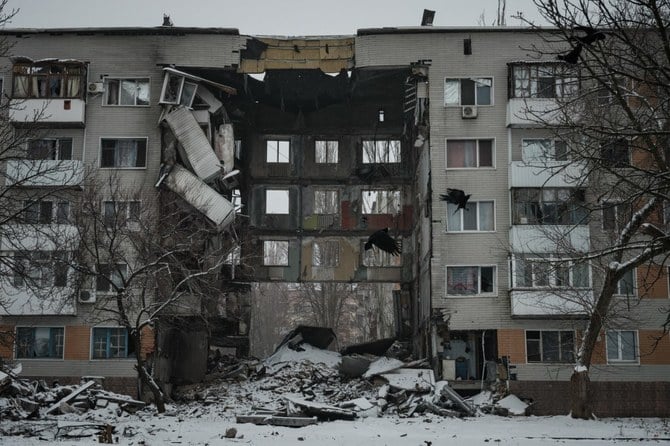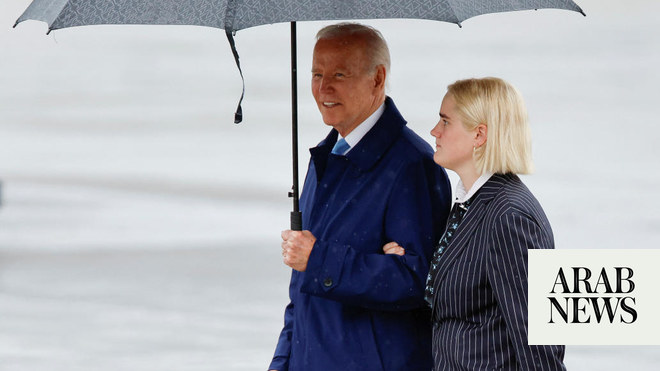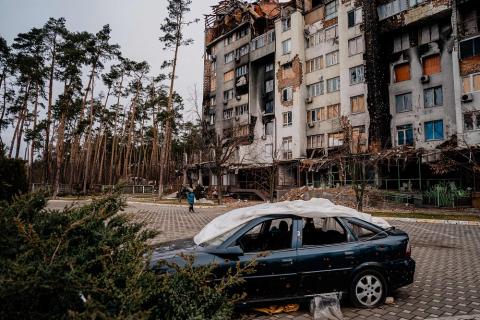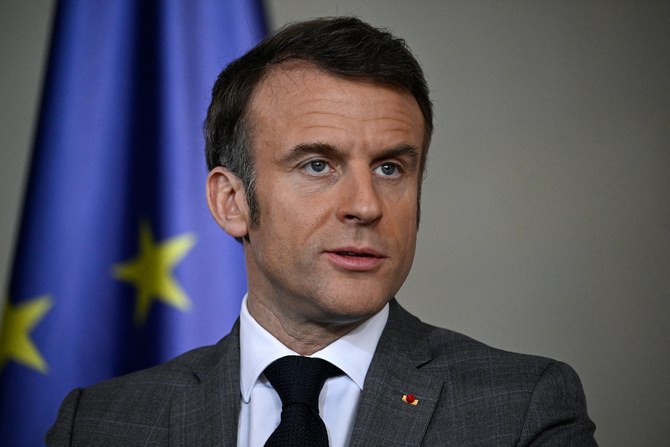
French President Emmanuel Macron is no stranger to controversy. Such is his belief in his own leadership qualities, it frequently leads to accusations of arrogance. Yet he thrives on this characterization, one that helped propel him to the highest office in the country in the first place. Still, his late-night announcement in a press conference at the end of a summit of 20 European heads of state in Paris last month, in which he did not rule out the possibility of sending European troops to Ukraine to support it in its war with Russia, was something of a bombshell even by his standards.
In the two years since Russia’s latest invasion of its Ukrainian neighbor, the efforts of the latter to reclaim all of its territory have stalled. Impressively, it has managed to recapture more than 50 percent of the land initially occupied by the Russian invasion back in 2022. However, almost a fifth of its territory is still occupied by Russian troops and breaking this military deadlock is proving to be more difficult than first envisaged.
At the beginning of the war, the West was united both in purpose and readiness to support Ukraine militarily, economically and diplomatically. But fatigue has now crept in and other crises have diverted our attention. And the longer the conflict remains unresolved, the more Ukraine’s backers of its just and heroic efforts to regain its occupied land are becoming sluggish, especially after last year’s spring offensive that failed to recapture all of the occupied territory.
Nevertheless, this is an extremely narrow prism through which to assess success or failure, as the war is well into its third year. First and foremost, support for Ukraine and its people is a moral imperative to protect those who are victims of naked aggression by a more powerful neighbor. But at no point should support for Ukraine be regarded as doing it a favor or as charity. Rather, it is a collective effort to preserve a rules-based international order. Otherwise, the way is opened to similar acts of aggression — and not only by Russia.
Macron’s refusal to rule out sending ground troops was as much a warning to Moscow as to his own allies
Yossi Mekelberg
Ukraine has become a test case for defending what the UN Charter and other international conventions stand for in terms of guarding the sovereignty of all countries, not to mention preventing war crimes or bringing to justice those who commit them. And on this occasion, when the aggressor is a permanent member of the UN Security Council, sticking by these principles is even more vital.
There were also immediate practical reasons behind the widespread support for Ukraine, among them being the need to counter severe disruptions in the supply chains of energy and food, exacerbated by a cost-of-living crisis that set back a world economy that was just emerging from the COVID-19 pandemic. This support has so far stopped short of sending in troops due to the perceived risks involved of starting a third world war with a nuclear power.
Macron’s refusal to rule out sending ground troops to Ukraine, while accepting that there is no consensus on this approach, was as much a warning to Moscow as to his own allies. A week later, the French president continued to mercilessly whip up his Western allies by urging them not to be “cowards” in supporting Ukraine’s war against the Russian invader. He added that he fully “stood behind” his remarks of a week earlier, making it clear that they were no slip of the tongue.
This is where France’s leader currently differentiates his strategy of winning the war in Ukraine from that of his Western allies. He claimed: “There is a change in Russia’s stance. It is striving to take on further territory and it has its eyes not just on Ukraine but on many other countries as well.” Defining his proposals as a defensive measure, Macron is urging other countries to heed this advice.
Back on Feb. 24, 2022, there was a massive sigh of relief at NATO’s headquarters that Ukraine was not a member of the organization. This relieved the alliance of the obligation to activate Article 5, which would have forced it to come to the defense of Ukraine. Nevertheless, this did not deter NATO and its members from mobilizing massive amounts of support for Ukraine as the country also immediately benefited from the exceptional wartime leadership of Volodymyr Zelensky and his government and the heroism of its people and soldiers. This meant Ukraine was able to contain Russia’s army with no need for Western troops on the ground.
Sending Western troops should be an option of last resort in the event of Ukraine being in imminent danger of defeat
Yossi Mekelberg
Macron’s motivation might have stemmed from being more attentive to the constant warning signs, including from the CIA, that Ukraine is running out of munitions, and from the US Congress being very slow in appropriating more funds to support the Ukrainians. Then there is the prospect of Donald Trump winning America’s November presidential election. Macron may also have sought to challenge his antagonist in the EU, German Chancellor Olaf Scholz, who dreads the idea of sending troops to fight in this war.
Recently leaked documents have also revealed that a number of countries, including the UK, the US, France, Latvia and the Netherlands, have already sent small numbers of special forces to Ukraine, while these and other countries have not made an effort to prevent their citizens from volunteering to fight on the Ukrainian side. However, Macron has now injected into the conversation the prospect of a much larger-scale military intervention and, in such a case, inevitably declaring war on Russia.
This would undoubtedly be an extremely risky move that should not be taken lightly. Ukraine needs and deserves the world’s support and the argument made by Kyiv that this is not only its war but one in defense of the rule of law and that would prevent further Russian expansion is not simply fearmongering but a sad reality. However, sending Western troops should be an option of last resort in the event of Ukraine being in imminent danger of defeat.
For now, military aid, the renewal of ammunition supplies, upgrading the existing weaponry and providing technical and training assistance should remain US and European policy, as Ukraine stands a good chance of regaining more of its territory and more pressure can be brought to bear on Moscow through a tougher sanctions regime. The combination of improved capabilities facilitated by Western aid and the gallantry of Ukraine’s soldiers has proved to be more successful than anyone dreamed possible two years ago — and this can be built upon. Macron’s idea of sending in ground troops has its merits, but we are already facing a Cold War 2.0 and this might just push the world to the brink of a third world war.
Yossi Mekelberg is a professor of international relations and an associate fellow of the Middle East and North Africa Program at international affairs think tank Chatham House. X: @YMekelberg





